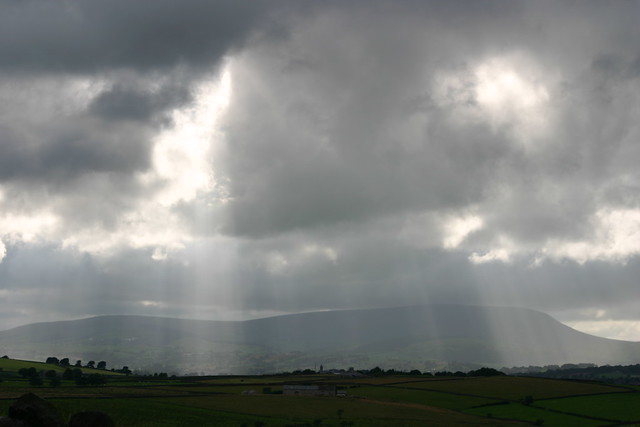
Isaiah 40:9 "Get yourself up on a high mountain, O Zion, bearer of good news, lift up your voice mightily, O Jerusalem, bearer of good news; Lift it up, do not fear. Say to the cities of Judah, “Here is your God!”
Introduction:
There are certain chapters in God's Word that contain enough revelation about God to provide a sweeping overview of His essence and attributes in one place. Isaiah 40 is a Mount Everest in the study of "Theology Proper" or the doctrine of God. Isaiah's marvelous chapter functions like a Divinely revealed telescope, giving the reader the opportunity to view the reality, the being and attributes of God. Its as if Isaiah is beckoning us to run to this chapter and urging us to "behold your God!". In this one chapter we get thoroughly introduced to the God of sacred scripture. In today's blog I want to give you the reader an outline of this marvelous chapter. The goal is to whet the appetite for more of God!
The prophet Isaiah begins the chapter with God being the source of comfort and ends with the same truth. We as human beings search for comfort in created things and then consider God. Whenever we turn to the Old and New Testaments, the order is reversed! To paraphrase the great Christian thinker A.W Tozer's practical application of theology proper: whatever enters into a person's heart when they think about God represents the most important thing about that person. To summarize Tozer's point - the one goal of life is this: to know God. In contrast to pagan deities, Isaiah is aiming to show his readers and us what kind of God God is with respect to His being, attributes and character.
What kind of God is the God of the Bible and Who is he revealed to be in Isaiah 40?
1. God is One God Who is Personal. Isaiah 40:1-9
Note: The seeds of thought pertaining to God's Triune identity in the New Testament are found in the first nine verses of Isaiah 40. God is indeed One in being and plural in terms of His identity. God's capacity to relate within Himself explains why human beings made in his image are by nature relational. Isaiah begins his chapter by showing us how God is one and yet Personal.
A. God is the Personal God that is the One True God. Isaiah 40:1
B. This Personal God is Father, Son and Spirit. Isaiah 40:2-9
2. God is Perfectly Infinite. Isaiah 40:10-26
Note: Christian thinkers refer to what is called "Perfect Being Theology". God as a Perfect Being refers to how He is the greatest being that can be conceived. Many of the major characteristics or attributes describing God's very being are found in Isaiah 40:10-26. Like rays of the sun, the attributes of God carry in them the totality of both their source and the other qualities of God. Thus, for example, God is all-knowingly wise and all-wise in terms of the knowledge He possesses. We sometimes refer to God's perfections as "The Perfect Being" as being necessarily perfect, meaning that He cannot be any other way. You and I, dear reader, are not necessary beings, but what we call "contingent", meaning that we could had possessed different qualities than what we have. I could be shorter or taller, fatter or thinner. God, however, is unchanging and thus necessarily exists, possessing the following attributes as described by Isaiah.
B. All Wise God (Omni-sapient) Isaiah 40:12
C. All Knowing God (Omni-scient) Isaiah 40:13-14
D. Infinite. Isaiah 40:15-17
E. Self Existent (Aseity).
Isaiah 40:18-20
F. All Present (Omni-present)
Isaiah 40:21-22
G. All Powerful (Omni-potent)
Isaiah 40:23-26
3. God is the Providing God. Isaiah 40:27-31
Note: When we study theology proper or "The Doctrine of God", we not only discover how God is above His creation or "transcendent", but also how He is ever relating to and near to His creation or "immanent". God's provisions bring home most practically this point.
B. He knows how to provide.
Isaiah 40:29
C. He knows to whom to provide.
C. He knows to whom to provide.
Isaiah 40:30-31
To God be the glory! May you and I dear reader find our strength in Him as we enjoy Him!
To God be the glory! May you and I dear reader find our strength in Him as we enjoy Him!









